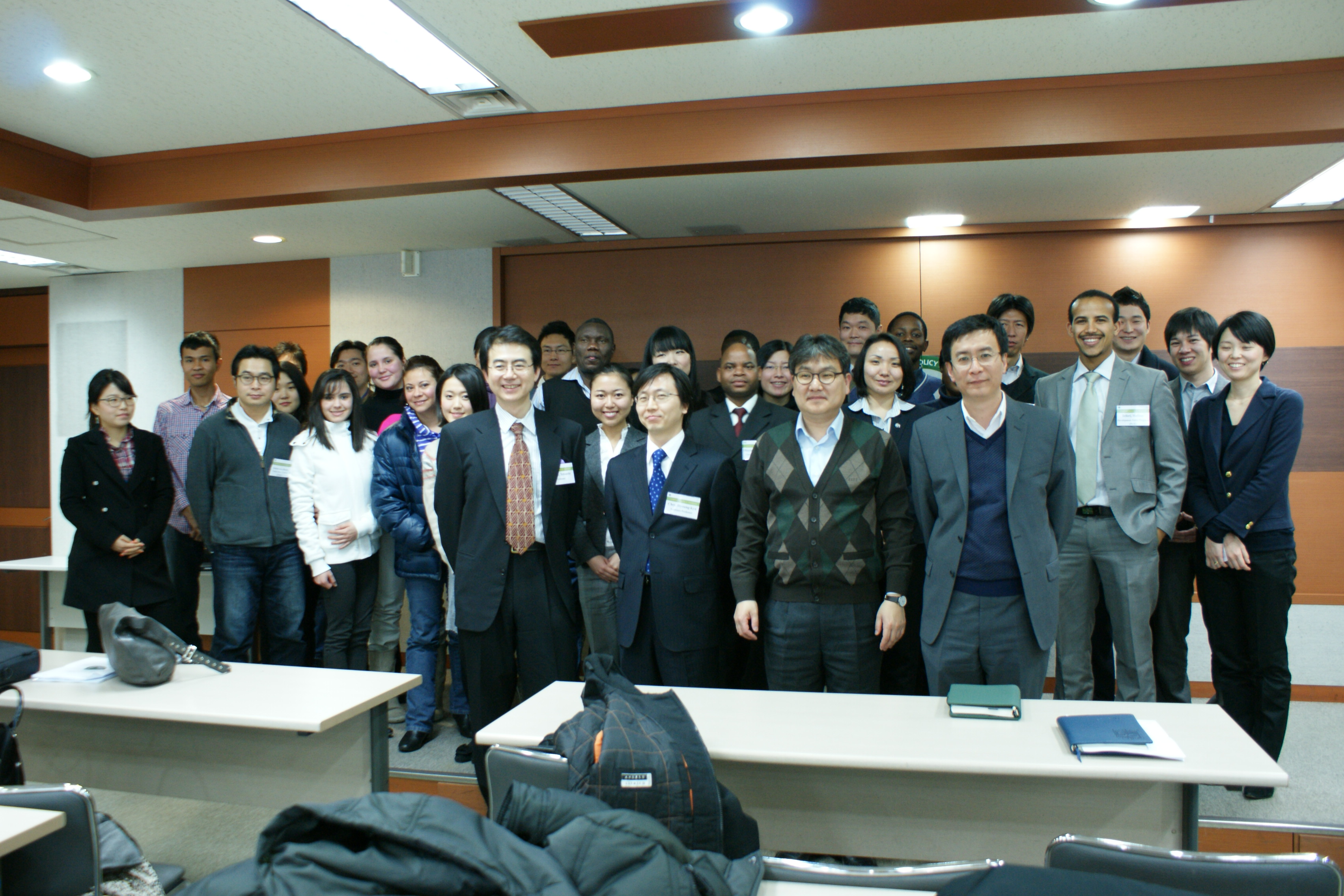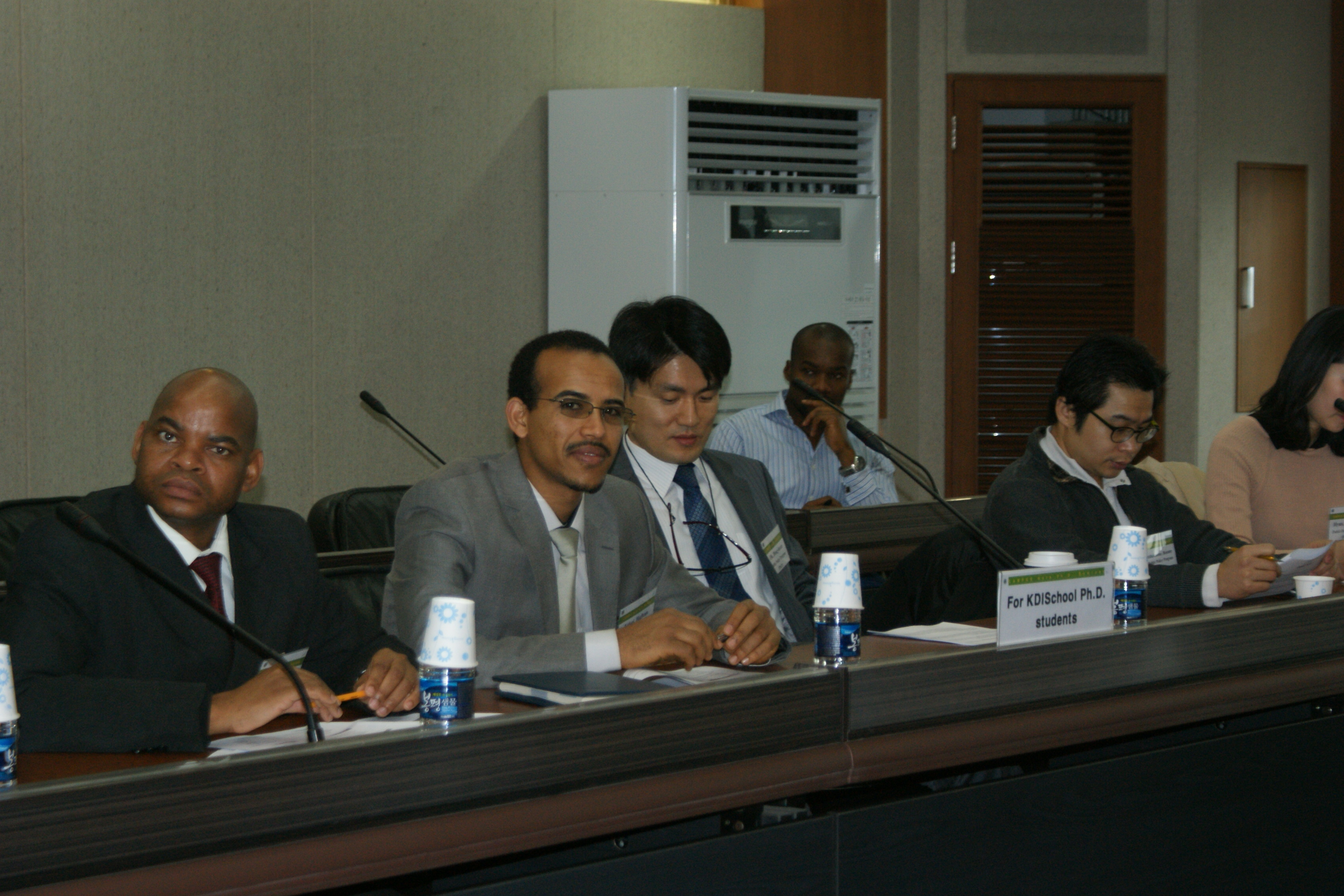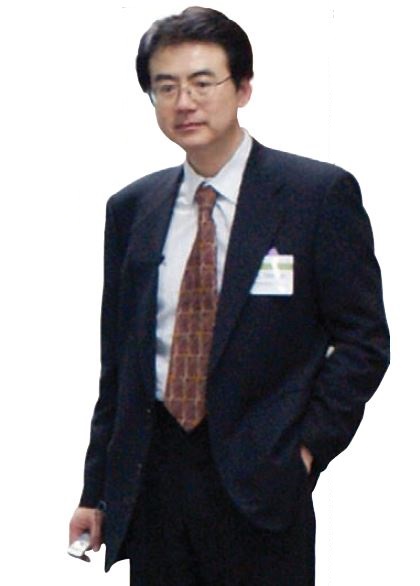
The Magic of Kaizen
- Date 2012-05-01 05:28
- CategoryResearch and Education
- Hit1808


They say time is money. It follows then that a system that saves both is an indisputable recipe for success. This is the impression I was left with after attending a special lecture by Prof. Tsetsushi Sonobe from the Graduate Institute for Policy Studies (GRIPS), Japan.
Prof. Sonobe with his students from GRIPS visited the KDI School on the 14th of March. Organized as part of the CAMPUS Asia program, this visit was the first step in promoting educational collaborations between the two partner schools. The morning session saw presentations from GRIPS’s Ph.D. students, where ideas and comments were freely exchanged. The lecture took place later in the day.
Intriguingly titled “A Primitive Study of Productivity in Developing Countries,” Prof. Sonobe’s talk highlighted the Japanese traditional work processes called Kaizen and how its application could improve business productivity by saving both time and money. Kaizen is a Japanese word that means ‘to improve’ or ‘to change for the better.’ In the business context, practicing Kaizen means standardising processes, cutting waste, establishing proper record keeping, and as such, increasing the overall productivity.
Professor Sonobe illustrated through a number of examples the undeniable improvement that firms like Toyota have made by incorporating the Kaizen principles into their management structure. Application of apparently simple techniques such as proper documentation and effective filing proved to greatly improve the management efficiency, especially in small and medium-scale enterprises (SMEs). The improvement consists of such business fundamentals as reduced production costs, reduced waiting time and increased turnover. Emphasis on Kaizen actually runs counter to what most businesses believed they have a problem with, namely finance. Professor Sonobe’s study showed that while finance was important, remarkable growth can be achieved by simply keeping the workflow fast and smooth.

The World Bank has been equally impressed with Kaizen that they are currently sponsoring a number of projects aiming to disseminate Kaizen practices to SMEs. Professor Sonobe himself has been working with the World Bank for different SMEs in Africa and Asia. The list of participating countries includes Ethiopia, Tanzania, Ghana and Vietnam to mention but a few.
The inspiring lecture was followed by a passionate Q&A session. Many students, particularly those from governments, said they had taken a vital lesson for their own countries. They viewed Kaizen as a readily viable, cost-efficient way to help their economy achieve meaningful growth, be it agriculture, manufacturing or service sector. The lively discussion that continued after the event was a testament to the unique position the KDI School has come to occupy as an incubator for future policymakers. It was heartening to imagine how the lessons learned will be put to use when the audience return to their respective countries.
By Keith HAMUSUTE (2012 MPP, Zambia)
Related News
-
Research and Education7 days ago
Republic of Korea Economic Bulletin, May 2024#KDI #Economic #KDISCHOOL #kdischool #Economic Bulletin #Research
-
Research and Education35 days ago
Republic of Korea Economic Bulletin, April 2024#KDI #Economic #KDISCHOOL #kdischool #Economic Bulletin #Research
-
Research and Education63 days ago
Republic of Korea Economic Bulletin, March 2024#KDI #Economic #KDISCHOOL #kdischool #Economic Bulletin #Research
